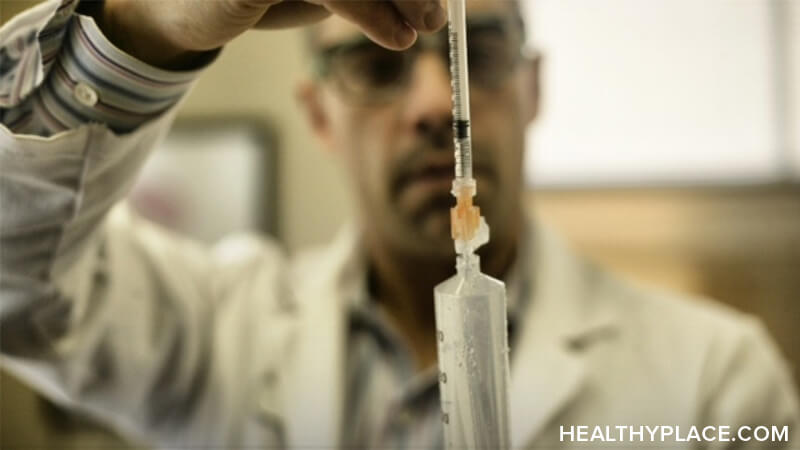Antipsychotic Medications For Treatment of Depression

While the name antipsychotic suggests this medication is for the treatment of psychosis, this is not altogether the case. Antipsychotic medications are commonly prescribed for the symptoms of schizophrenia, such as delusions or hallucinations, but they are also prescribed for bipolar disorder and major depression.
Antipsychotics for Depression
Antipsychotics are broken down into two groups:
- Typical antipsychotics, also known as first generation antipsychotics
- Atypical antipsychotics, also known as second generation antipsychotics
Atypical antipsychotics are the type most commonly prescribed for depression. They may be prescribed alone or in addition to other medication. Commonly prescribed antipsychotics include:
Pro: Antipsychotics work on the brain differently than antidepressants and may help those who haven't been helped by antidepressants.
Con: Antipsychotics can have serious side effects such as weight gain, muscle ticks and blood sugar modification.
Mood Stabilizers For Treatment of Depression
Mood stabilizers are a class of medications most frequently used to treat bipolar disorder but can also be used in MDD particularly if there is suspicion of bipolar disorder. Mood stabilizers may be prescribed alone or, more commonly, prescribed with an antidepressant.
Mood stabilizers are medications that are known to treat either high or low moods or both. For example, a mood stabilizer may effectively treat depression while not treating mania, but not making the mania any worse.
Because the definition is based on effect rather than on how the drug works, many types of drugs can be thought of as mood stabilizers. Some anticonvulsants (seizure medication) and antipsychotics fall into this group. The most common mood stabilizers used for the treatment of depression include:
Pro: These medications work differently than antidepressants or antipsychotics and lithium, specifically, has a long treatment history. May be particularly beneficial if bipolar depression is suspected.
Con: Less evidence is available for using these drugs to treat MDD.
Treating Depression with Other Medications and Supplements
Some people respond when specific supplements are added to their medication, and in rare instances, supplements alone. The two supplements supported by data are omega-3 and L-methylfolate. The herb, St. John's Wort, can also be used in the treatment of depression.
Pro: These options tend to have fewer side effects.
Con: Concentration and quality cannot be guaranteed for unregulated over-the-counter products. There is less evidence supporting the use of St John's Wort in the treatment of MDD. L-methylfolate is thought to help only a small percentage of people.
The Cytochrome P450 (CYP450) Genotyping Test
Least common is to take the cytochrome P450 (CYP450) genotyping test. This test attempts to predict which antidepressant is right for you by checking for genes that show how you metabolize types of medication. This and other gene tests aren't commonly available.
APA Reference
Tracy, N.
(2022, January 4). Antipsychotic Medications For Treatment of Depression, HealthyPlace. Retrieved
on 2026, March 4 from https://www.healthyplace.com/depression/severe-depression-treatment/antipsychotic-medications-for-treatment-of-depression


